SCFS 490 - Senior Farming Systems Practicum Internship Sites
The SCFS 490 Senior Farming Systems Practicum is a graduation requirement for all SCFS students. It requires participants to work a minimum of 120 hours at the chosen site during the semester, or the summer session prior to the semester. The remaining 40 hours will be dedicated to classroom instruction, oral presentations, and discussion. The chosen farm or ranch will be one of mutual interest for the student and faculty member. If a student would like to select a farming system not listed below, they must ensure the site has been approved by Dr. Miles in advance. In addition to the general work responsibilities of assisting in the daily operation of the farm/ranch, each student will be assigned a specific role and set of responsibilities during their tenure at the farm enterprise. Key goals of the practicum are to: develop professional-level work skills and contacts; develop professional-level oral communications skills; facilitate the daily work of the organization/enterprise; develop an understanding of (and critically evaluate) the agronomic production practices and operations used by the enterprise in advancing sustainable farming systems; and develop critical reading, writing and public speaking skills. Note: If the chosen site has specific program details for an internship, they can be found in each section below, along with all necessary documents for the practicum.
KualoaGrown is the brand of Kualoa Ranch’s diversified agricultural operation. Their diverse team grows, cultivates, and raises locally grown, responsibly raised food for Hawaiʻi & its visitors. This includes 60 different crops, a variety of tropical flowers, and the production of five types of proteins: beef, pork, shrimp, oysters, and lamb. This makes KualoaGrown one of the most diverse farming operations in the state. They take immense pride in everything produced, while supporting the local community with high-quality food. In addition to cultivating great products, their agricultural efforts also aid in Hawaiʻi’s food security with 100% of harvests being consumed locally. Their objective is to continue supporting a healthy food system & island community, by providing high quality internships & learning experiences to collegiate level students across Hawaiʻi.
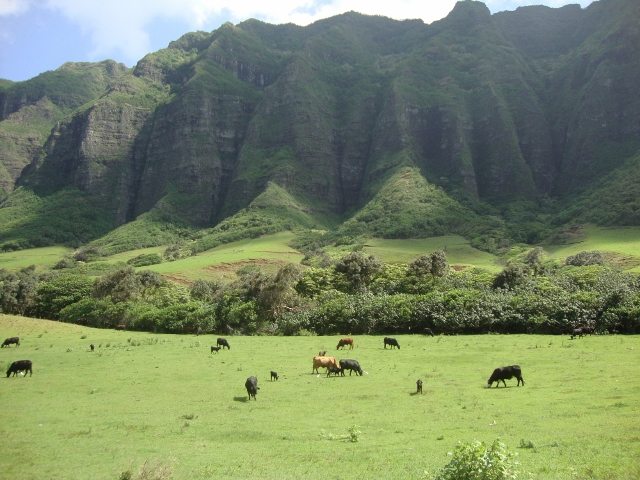
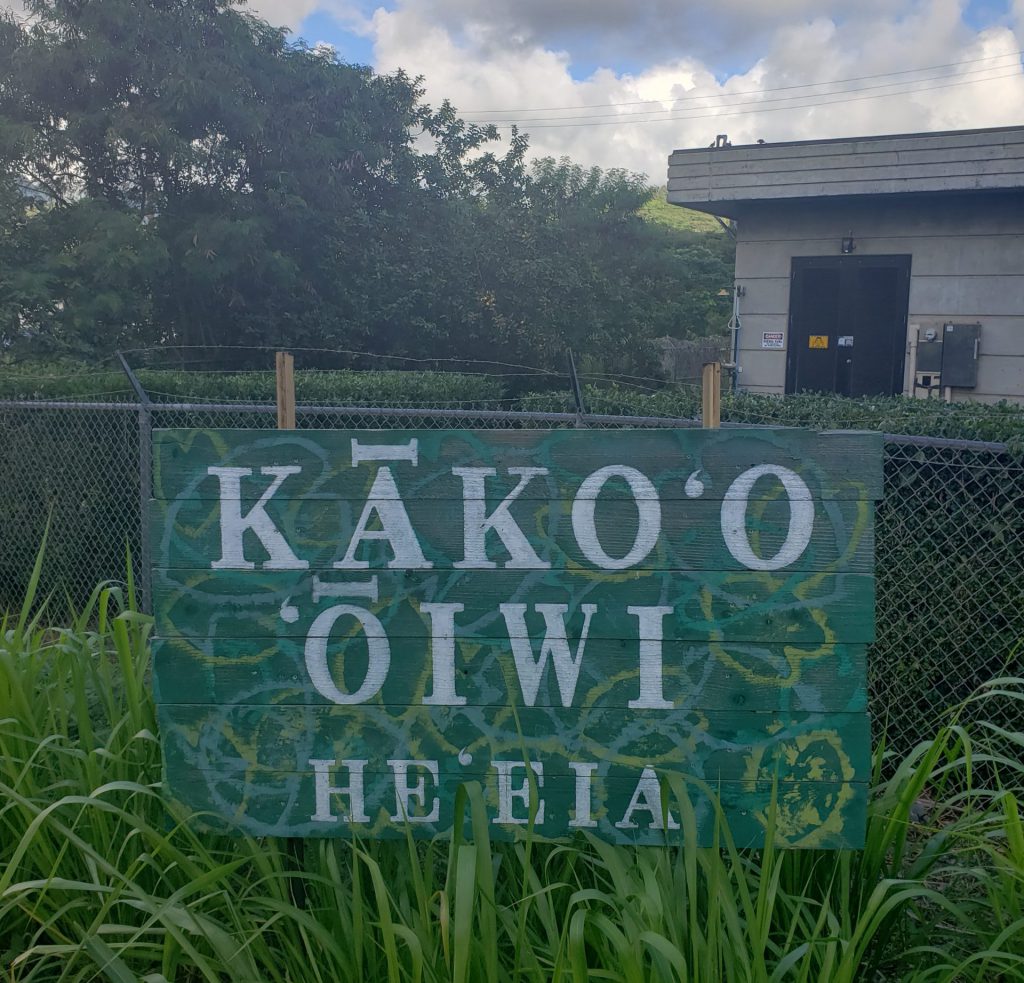
Kākoʻo ʻŌiwi is a 405-acre wetland parcel located in Heʻeia on Oʻahu’s Windward side. The organization implements and supports activities related to cultural practices, agriculture, education, and natural resource restoration and management. Students working at this site have been involved in planting and harvesting kalo, managing invasive animal species, and eradicating invasive plants and trees to enhance the wetlands and connected loko iʻa (fishpond).
Kuhialoko is located in Waiawa Kai on Oʻahu’s Leeward coast, makai side of LCC. Through the Waiawa Kai Native & Cultural Wetland Revitalization Project, the hui works to educate participants while restoring the land and the many species connected to its health, in addition to bringing families together to strengthen relationships with each other, the community, and surrounding environments. Students working at this site have participated in eradicating invasive plant and animal species, reintroducing native plants to create habitats for indigenous and endemic bird and fish species, and the clearing of overgrown fishponds, ʻauwai, and muliwai to enhance existing wetlands for ecosystem health and abundance for future generations.
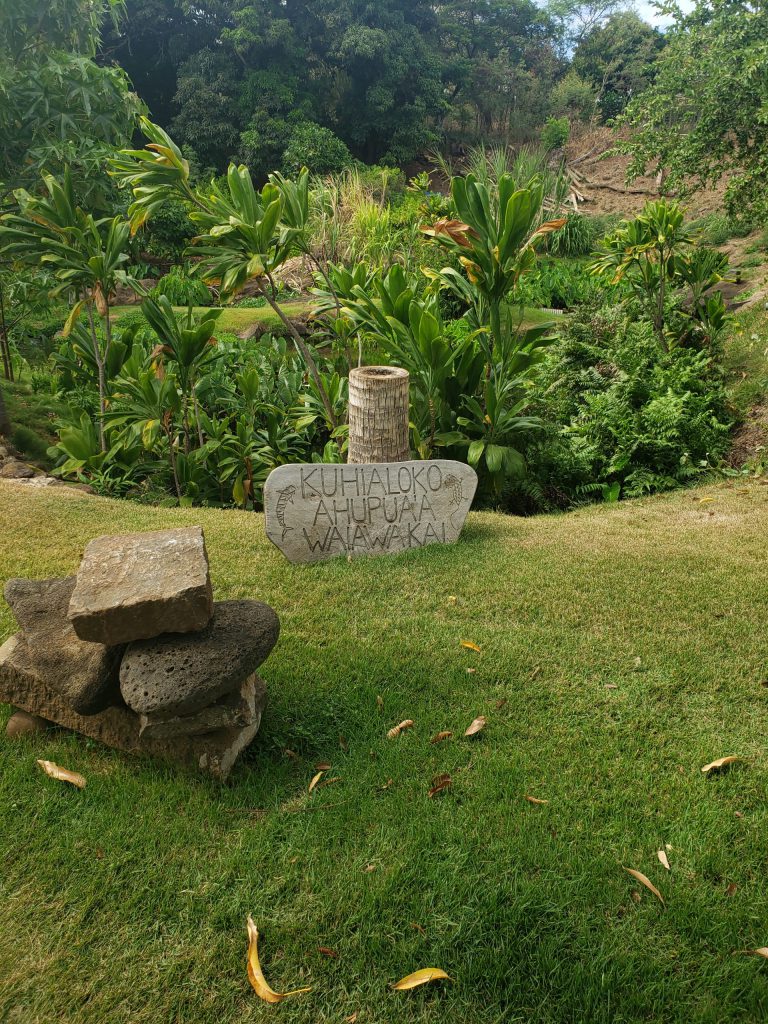
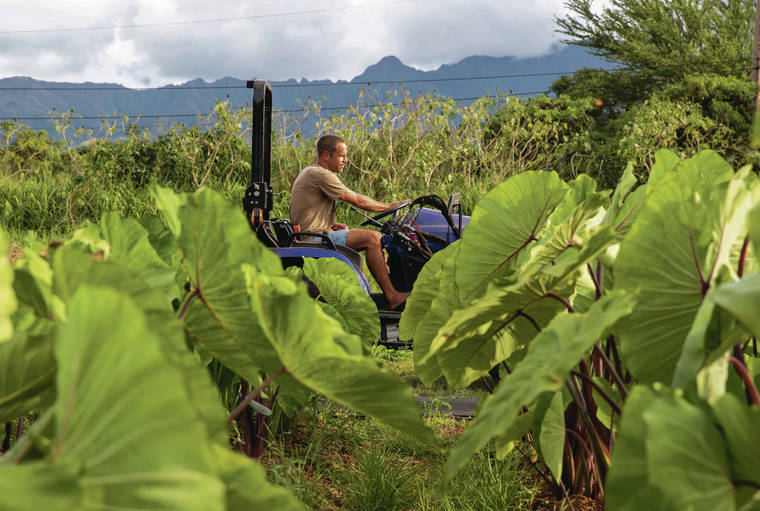
Kōkua Hawaiʻi Foundation (KHF)
KHF is a 501(c)3 non-profit organization supporting environmental education in Hawaiʻi’s schools and communities. Thier mission is to provide students with experiences to enhance their appreciation for the environment and become lifelong stewards of ʻāina and community. Students working with KHF can participate in daily operations at their new learning farm, located on Oʻahu’s north shore in Haleʻiwa. The farm spans 7 acres and includes production fields, an orchard, Hawaiian food gardens, loʻi kalo, demonstration gardens, and a composting area.
Located in Lualualei on the Waiʻanae coast of Oʻahu, Maʻo is an organic farm that services the community with fresh produce while facilitating a unique educational program to empower local youth. Students who have participated as interns at Maʻo have been involved with the production, packaging, and distribution of fresh produce. Additional projects involving practicum students have included experimental growing of sweet potato and tomato plants, as well as clearing trees for farm expansion, and tracking data on the CSA box program that services the Waiʻanae coast.
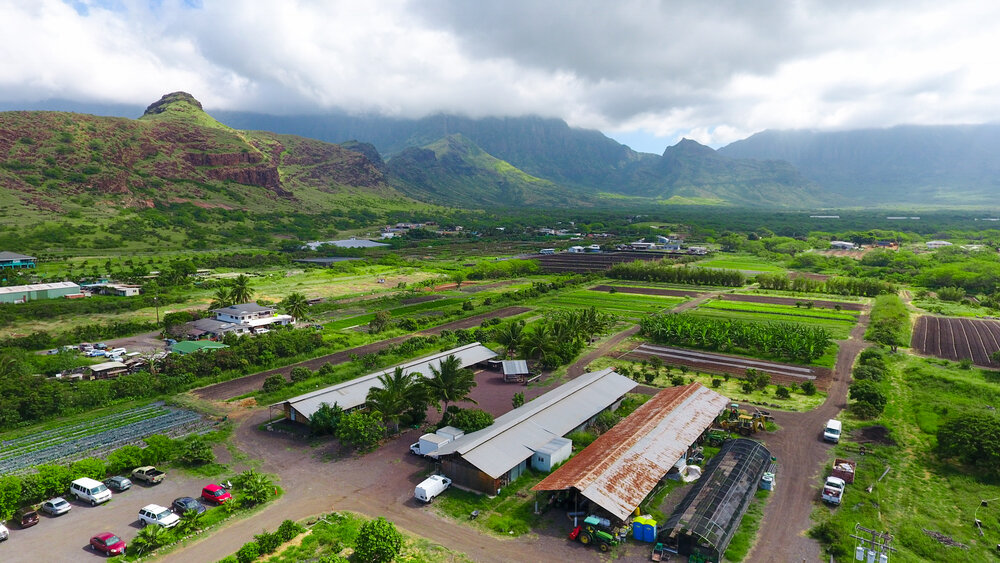
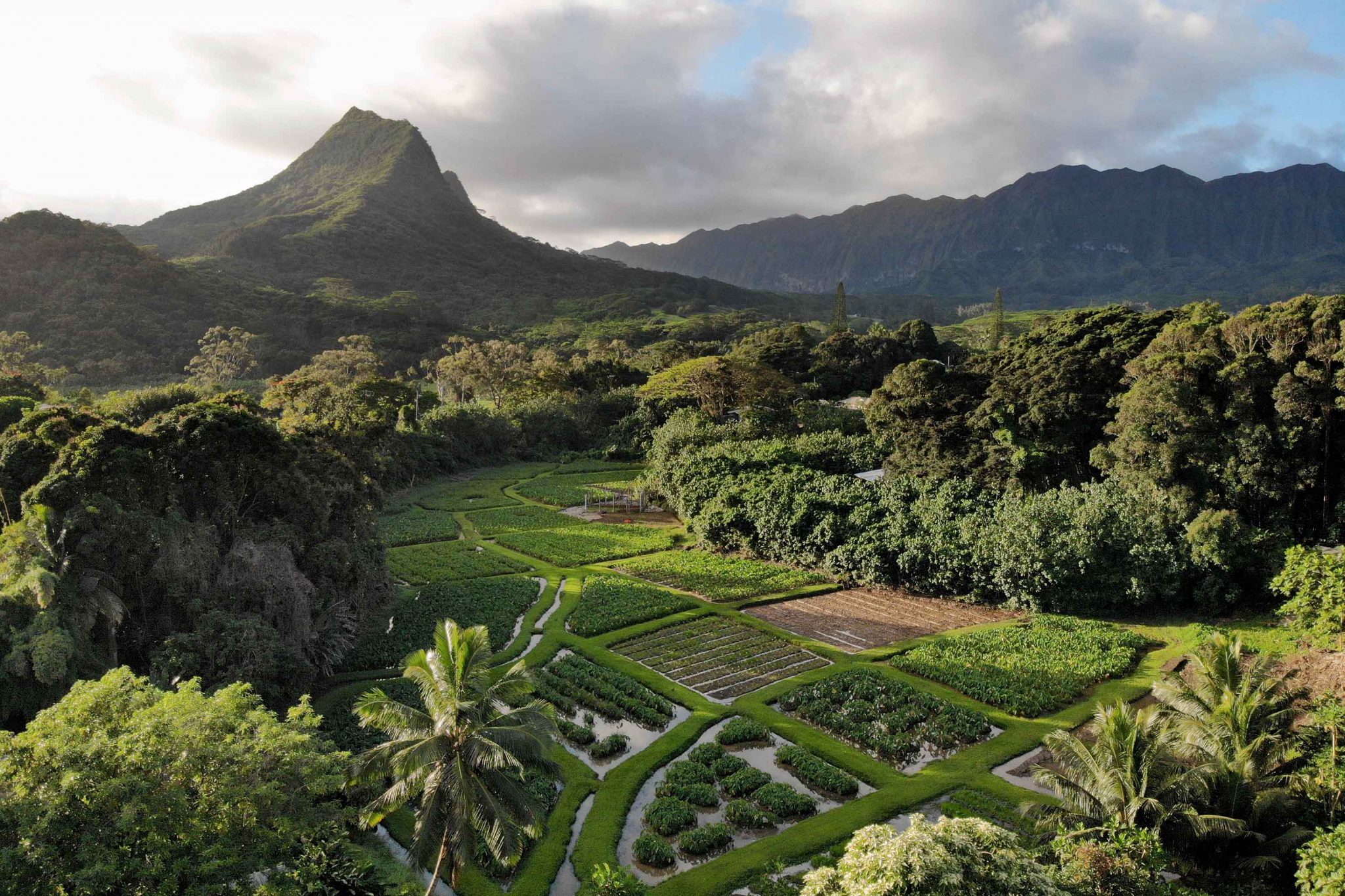
Hoʻokuaʻāina is a 501(c)3, non-profit organization that spans roughly 7.6 acres in the ahupuaʻa of Kailua at Kapalai in Maunawili on the island of Oʻahu. Their vision is to maintain space for the community to gather and connect with their love for ʻāina. They work to perpetuate Hawaiʻi culture through the cultivation and preparation of kalo, and to be a place which brings healing to all people, especially at-risk youth. Students participating at this site will be involved with maintaining and cultivating kalo, managing water and nutrients, and overall ahupuaʻa management.
Ka Hiapo at Kūkaniloko
Ka Hiapo is a konohiki pilot program located in kalana Kūkaniloko (Wahiawā, Līhue, Halemano) at the piko of Oʻahu. Thier goal is to restore traditional Hawaiʻi agricultural practices to the ʻāina while providing an outdoor educational space to experiment with soil remediation, out-planting native trees and food crops, and growing leaders for the community. In ancient times, this place was a birthing area for Oʻahu’s aliʻi, and a training ground for leadership and management. They believe engaging in community-based management to implement an agro-ecosystem near this cultural complex will preserve the health, restore the vitality, and strengthen the resilience of this cultural ecosystem. Interns will have an opportunity to help build this program from the ground up, establishing nurseries, planning farming plots, and engineering irrigation systems.
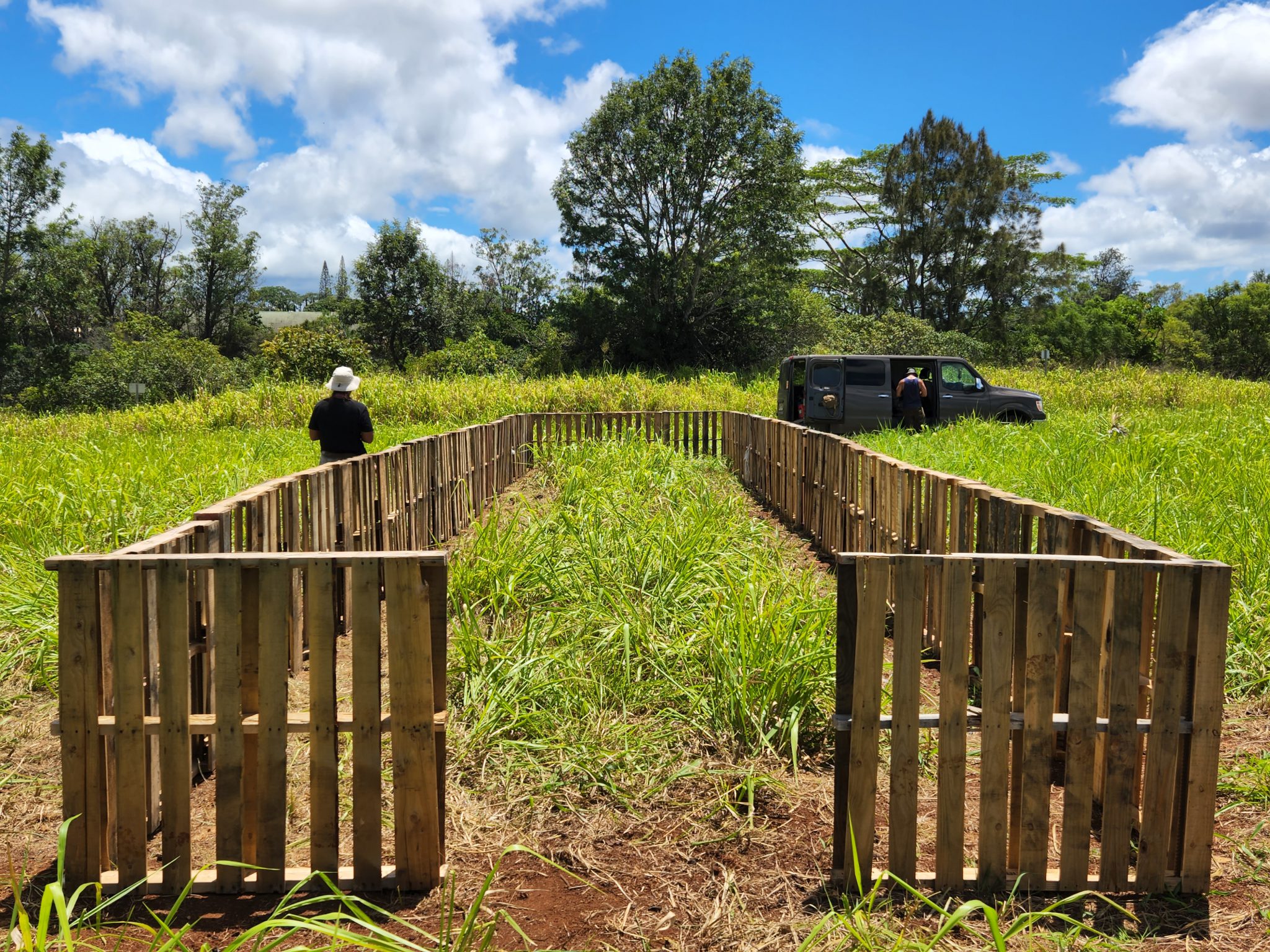
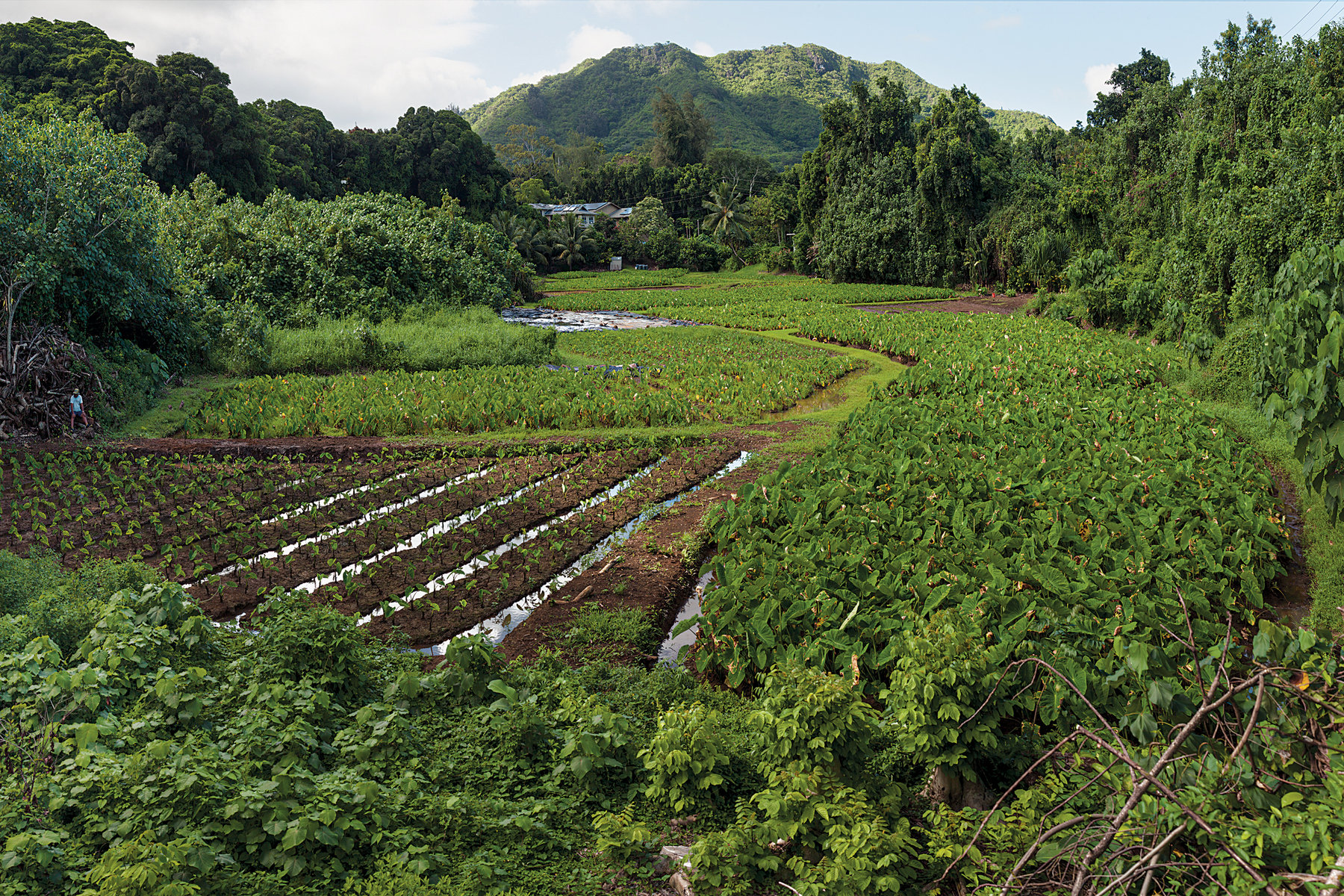
Waianu (Reppun) Farm
With approximately 10 acres currently under production, Waianu Farm is located in the ahupuaʻa of Waiāhole, in Koʻolaupoko, Oʻahu. Kalo is the primary crop, and other crops being cultivated include corn, ʻuala (sweet potato), ʻulu (breadfruit), coffee, and cacao. In addition to these main crops, they are also growing tomatoes in their greenhouse along with a variety of tropical fruits. Student interns at this site have gained extensive knowledge regarding kalo cultivation, to include fundamental organic growing strategies and crop cycling of diverse kalo varieties.
Located on the west side of Oʻahu in Lualualei, Kahumana is a non-profit 501(c)3 organization. It was started as a community of people seeking an alternative method to creating a holistic world. Since its beginnings in 1974, Kahumana has grown to 5 distinct campuses on over 50 acres in the beautiful Lualualei Valley. Their work is grounded in the values of makaʻala (mindfulness), aloha (empathy), and lōkahi (working together). Included in their diverse mix are folks from all walks of life: farmers, social workers, social entrepreneurs, people transitioning from homelessness, visitors, locals, youth, and people with disabilities, to name just a few.
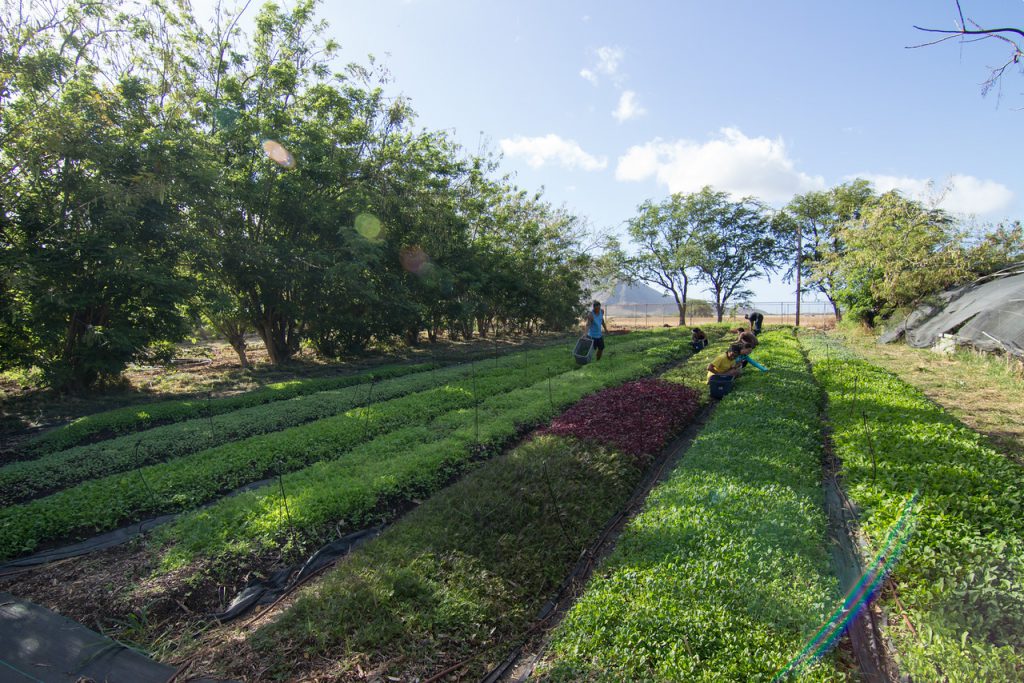
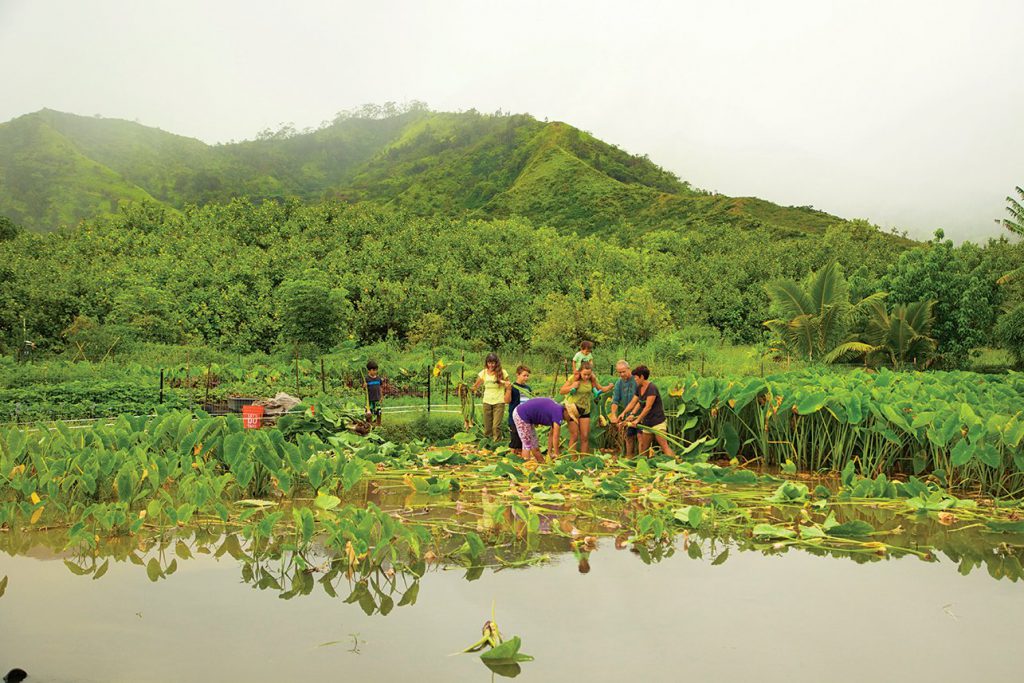
For over 20 years, Waipā Foundation has stewarded the 1,600-acre ahupuaʻa of Waipā, under a lease from the landowner, Kamehameha Schools. Located along Hanalei Bay, Waipā is one of the nine ahupuaʻa in Kauaʻi’s Haleleʻa district. Waipā is a place where folks can connect with ‘āina (that which feeds us – the land and resources) and learn about our Hawaiian values and lifestyle through laulima (many hands working together).
The UC Davis Student Farm is located in Davis, California. Their mission is to hold a space where students can learn, practice, and model an ecologically, socially, and economically sustainable agriculture and food system. The Student Farm welcomes all students to build this more equitable and just farm and food system by cultivating student initiatives, leadership, experiential learning, and inclusive communities. The Student Farm hosts a number of different programs that offer opportunities in market-scale farm production, food access and security, diversified fruit, vegetable, and herb cultivation, garden-based education, commodity crop breeding, and pollination habitat establishment and restoration.
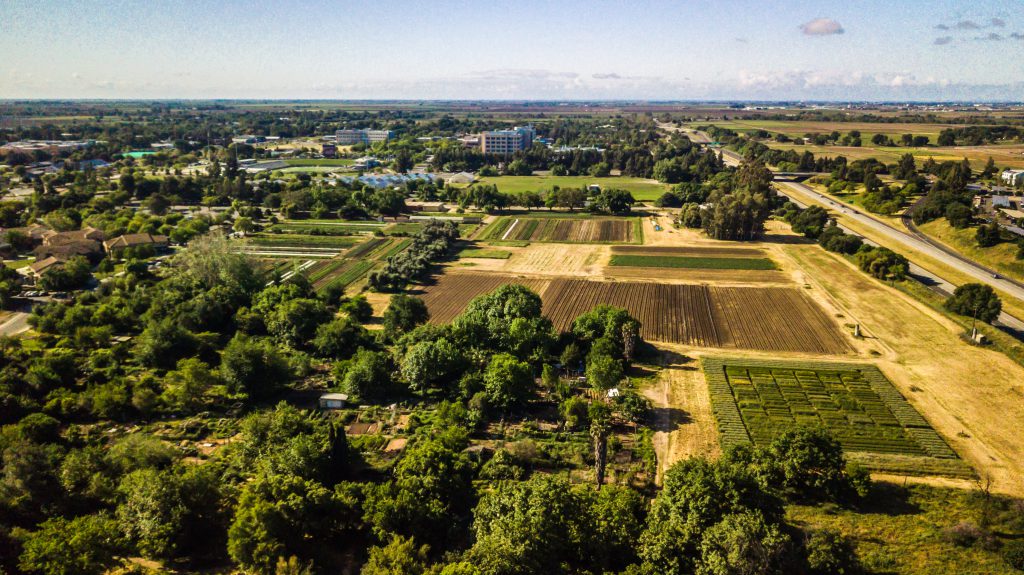
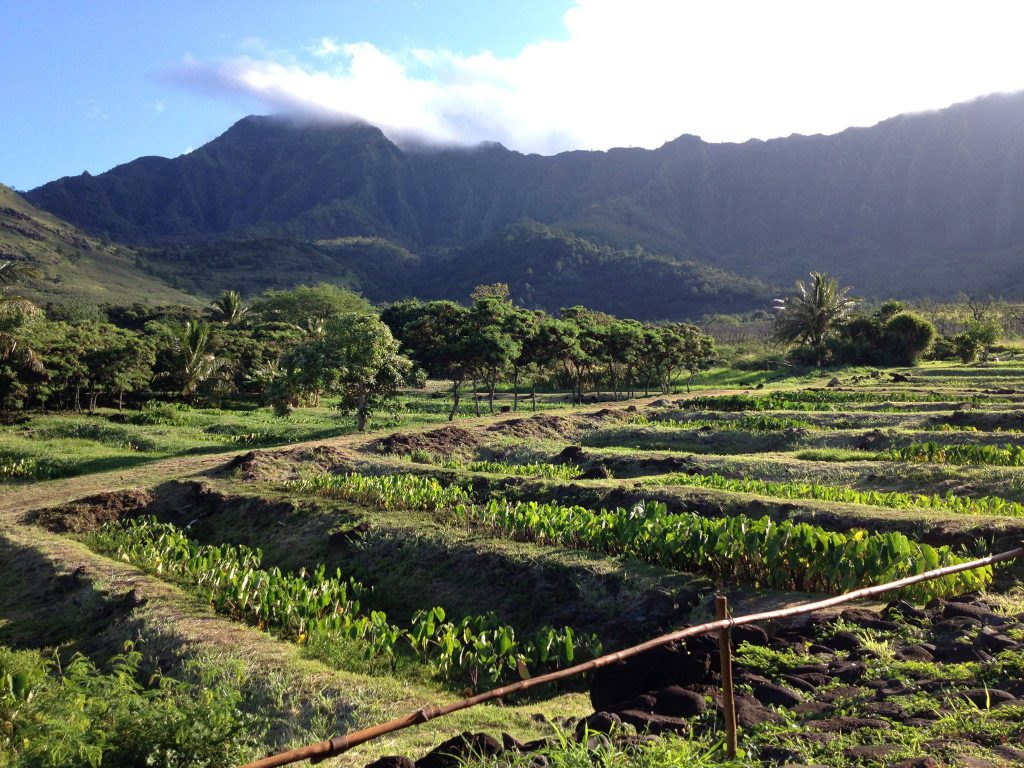
Kaʻala Farm and Cultural Center
Kaʻala Farm is an ancient agricultural complex, restored and producing kalo as kanaka Hawaiʻi have done for centuries. It is a cultural learning center where learning comes alive for thousands of school children in their hands-on science program every year. Thier mission is to reclaim and preserve the living culture of poʻe kahiko (people of old) in order to strengthen the kinship relationships between ʻāina and all forms of life necessary to sustain the balance of life on these venerable lands. Student interns gain experiential knowledge maintaining loʻi kalo, managing water systems, and harvesting and processing kalo from lau to iʻo kalo.
Mohala Farms is a non-profit organization consisting of 6 acres, located in Waialua on Oʻahu’s North Shore. Thier mission is to foster local communities in Hawaiʻi through sustainable agriculture, lifelong education and cultural & creative arts. Their work is grounded on the life-giving qualities of the land and a village-model of mutual cooperation and local self-sufficiency. Student interns gain practical tools and skills related to organic farming methods, such as planning and planting cover crops, compost management, mulching, EM (compost tea spray), and vermicast/vermacomposting.
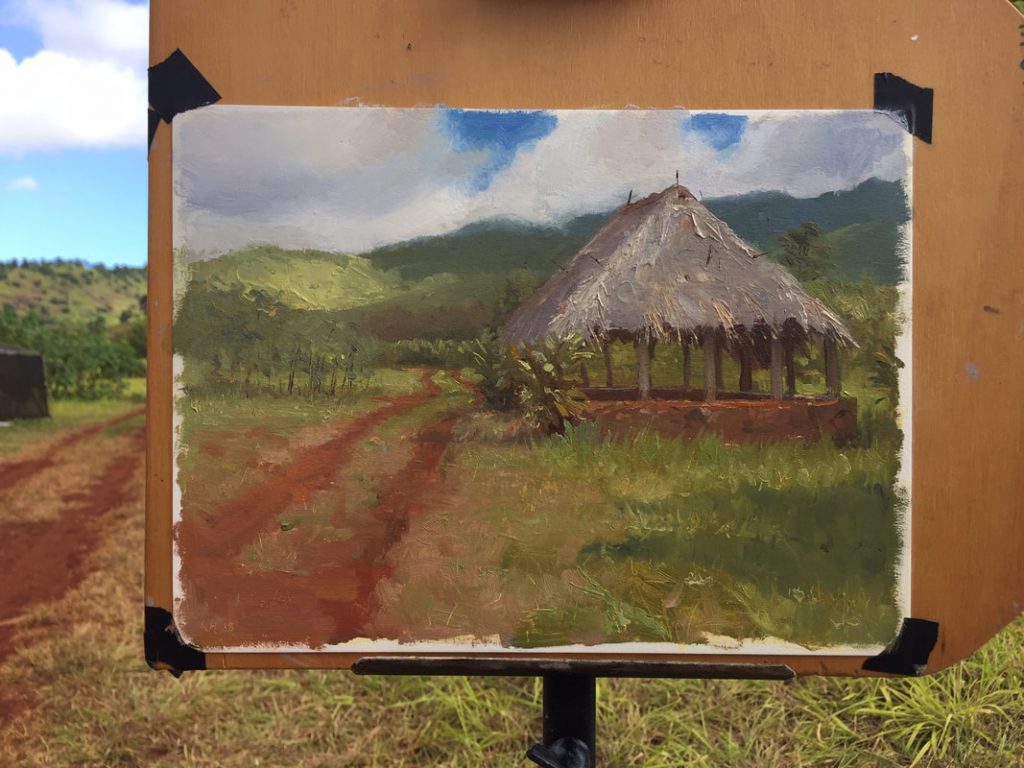
APSC 490 - Senior Food Systems Practicum Internship Organizations
The Senior Food Systems Practicum is designed to integrate the theory and practice of food system transformation through experiential and hands-on learning in a professional setting. Students are required to work a minimum of 120 hours at the practicum site during the semester under the direct supervision of the host. During the Spring semester, students MUST participate in Purple Maiʻa’s Hawaiʻi Food+ Policy Internship (all details for this practicum are listed in the organizations section below). For the Fall semester, students may choose from any of the other organizations listed, or the student must ensure their preferred site has been approved by Dr. Miles in advance. The chosen organization must be a state or national non-profit public interest, education or environmental advocacy organization working to protect human health and the environment and promote sustainable food and agriculture. Key goals of the practicum are to: develop professional work skills and contacts, facilitate the work of the organization, develop an understanding (and critically evaluate) the goals, objectives and strategies used by the organization to advance food systems change, achieve a set of 3-5 personal learning objectives defined by the student. Note: If the chosen site has specific program details for an internship, they can be found in each section below, along with all necessary documents for the practicum.
Purple Maiʻa’s Hawaiʻi Food+ Policy
Hawaiʻi Food+ Policy consists of students and recent college graduates working to inform their communities regarding food and agriculture legislative measures. They provide the public with education and background on important food system issues and related policies to encourage a more sustainable and resilient food system. The group is under the direction of Purple Maiʻa, and operates independently of the University of Hawaiʻi system.
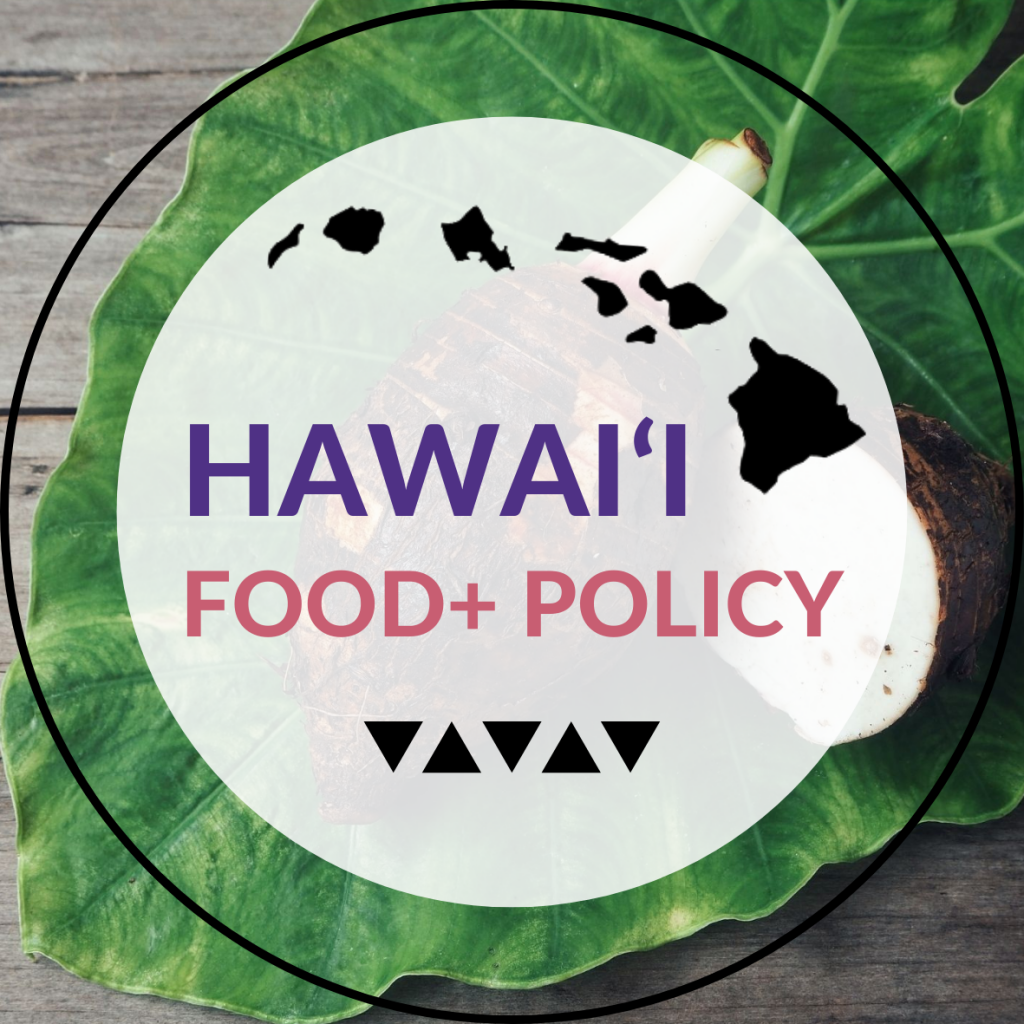
Fall Semester Practicum Organizations
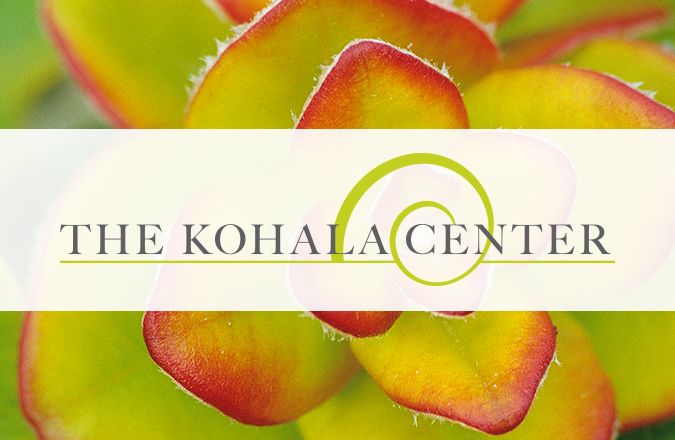
With headquarters located in Waimea, Hawaiʻi, the Kohala Center is an independent, community-based center for research, conservation, and education. They turn research and ancestral knowledge into action, so that communities in Hawai‘i and around the world can thrive—ecologically, economically, culturally, and socially. Their main areas of interest are energy self-reliance, food self-reliance, and ecosystem health. By focusing on the needs of island residents and the research interests of their university and agency partners, three core areas of work have emerged: energy self-reliance, food self-reliance, and ecosystem health.
Kōkua Hawaiʻi Foundation (KHF)
KHF is a 501(c)3 non-profit organization supporting environmental education in Hawaiʻi’s schools and communities. Thier mission is to provide students with experiences to enhance their appreciation for the environment and become lifelong stewards of ʻāina and community. Students working with KHF have participated in the ʻĀina in Schools program where they engaged local youth as docents teaching elementary keiki about sustainable, organic agriculture practices they can employ in their schools’ gardens. KHF also has opportunities available at their Kōkua learning farm in Haleʻiwa on the North Shore of Oʻahu.
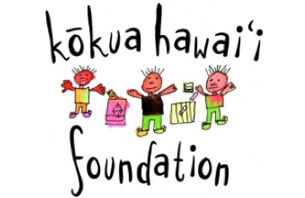

The Center for Food Safety (CFS)
Through legal, policy, research, education and community organizing initiatives, the CFS Hawaiʻi Program works to protect human health and the environment from the harmful impacts of industrial agriculture in the Hawaiian Islands and promote a vibrant local food system by supporting sustainable farming, soil restoration, and seed saving projects. As a partner of Hawai‘i-based organizations for over a decade, CFS has leveraged their national resources to support the growing movement of community members fighting for a safe and biodiverse food system.
Waiʻanae Community Redevelopment Corporation/MAʻO
Established in 2001, the Waiʻanae Community Re-Development Corporation (WCRC) is a native-controlled 501(c)3 non-profit organization located in the moku of Waiʻanae on Oʻahu. WCRC created the MAʻO Community Food Systems Initiative to empower youth, families, and community to work toward a just, healthy, self-reliant, sustainable and resilient food system for Hawaiʻi. MAʻO has a goal to develop a comprehensive and living local food system–educating youth, fighting hunger, improving health and nutrition, growing the organic agriculture industry–to empower our community to move towards self-determination and self-sufficiency.

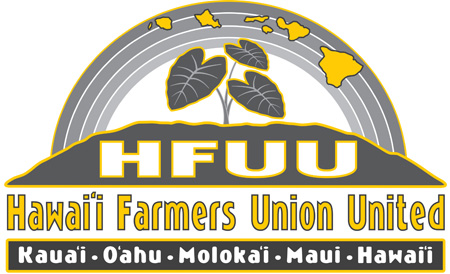
The Hawaiʻi Farmer’s Union United (HFUU)
HFUU is a 501(c)3 non-profit organization made up of 15 Chapters across 6 of the Hawaiian Islands. They are grassroots-driven with a focus on legislation, education, and cooperation, and support family agriculture as the basis for thriving rural communities. They are represented with a seat on the Hawaiʻi Board of Agriculture and members consist of farmers, gardeners, fishers, ranchers, and community members who purchase and consume locally produced farm products.
With farms located in Sacramento, CA and Linda, CA, WeGrow’s mission is to grow high quality seasonal vegetables for their local communities and to inspire and empower the next generation of farmers of color. Founded in 2018, WeGrow established roots in the community surrounding their urban site, as well as local non-profits and markets. They adapted their crop plan to meet the needs of those they serve, and carefully tended the soil and seeds as to steward the land back piece-by-piece.
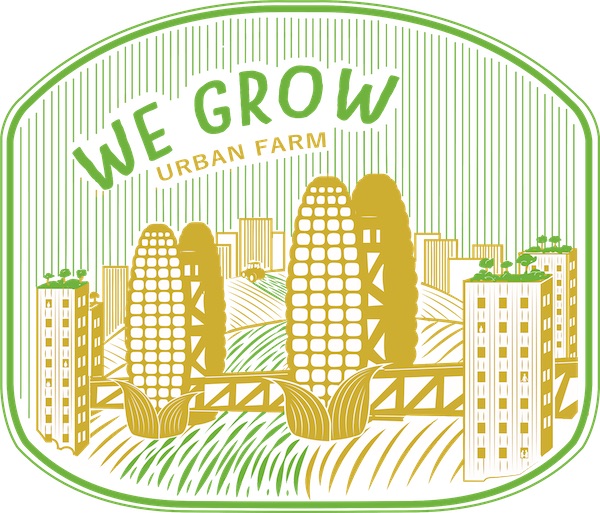

West Oʻahu Soil and Water Conservation District (SWCD)
SWCD’s mission is to coordinate and facilitate partners and governmental agencies in identifying and implementing projects and practices with cultural sensitivity to assure the protection of Hawaiʻi’s environment. Soil and Water Conservation Districts are self-governing sub-units of state government, with administrative and financial support provided by the Department of Land and Natural Resources (DLNR). There are 16 districts in Hawaiʻi County, and 3 in Honolulu County, organized by the Hawaiʻi Association of Conservation Districts (HACD). The districts are active in a wide variety of water conservation plans and activities. This includes watershed planning, flood prevention, erosion control plan reviews on agricultural land, control of non-point source pollution, wildlife habitat preservation, conservation education, and youth work.